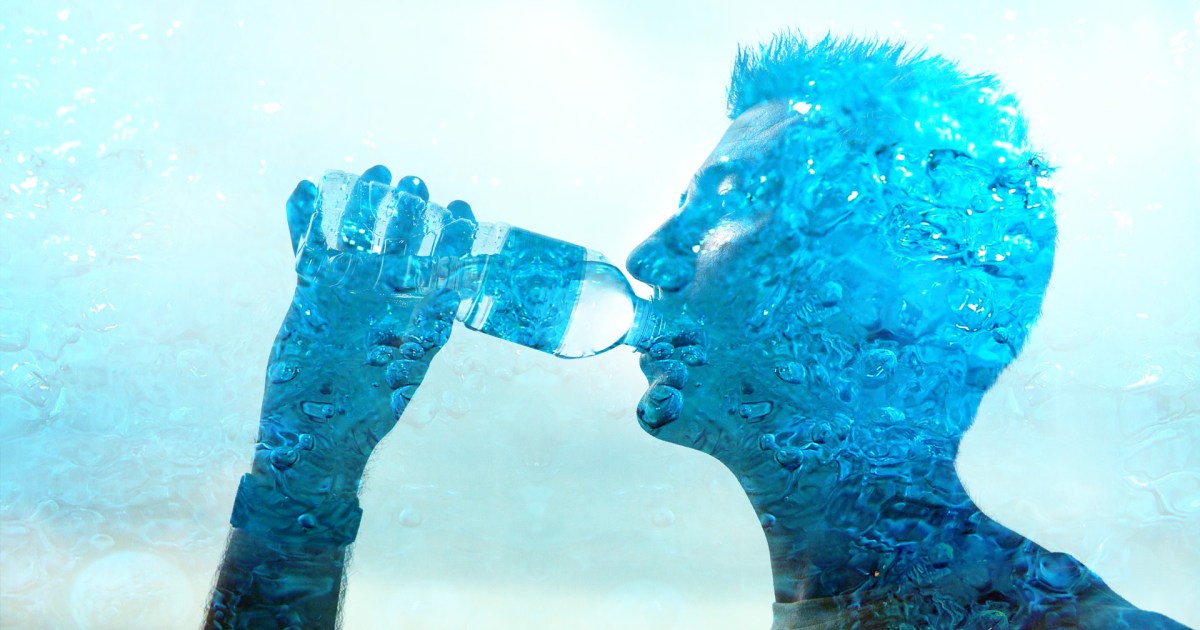Water represents 65% of the body composition, and it is an essential ingredient that we cannot do without. Here, we present a set of beliefs about drinking water, and explain the correct and the wrong ones, according to a report by the French magazine Santé Magazine.
“Drinking water should be avoided while eating” Correct or False?
Error. Contrary to popular belief, drinking 2 or 3 cups while eating does not harm the digestive process. Water expands the stomach so it is necessary on the table, and it is also one of the drinks that can be consumed without the risk of developing gastrointestinal disorders, provided that you do not drink an entire bottle of course.
Water also reduces appetite, which is a helpful factor for people who want to monitor their weight.
“You don't have to wait until you feel thirsty to drink water,” right or wrong?
True. Thirst is a signal that appears when the body is dehydrated. According to Dr. Lawrence Blume, "this feeling is due to the stimulation of mechanical receptors on the walls of blood vessels that monitor blood pressure." When the body suffers from a lack of water, blood pressure drops. Receptors send a signal to the thirst-regulating center on the hypothalamus, which stimulates the need to drink. "
As evidenced by going to the toilet many times that we lose quantities of water frequently throughout the day. To ensure that a good level of hydration is maintained, you should drink regularly without waiting for thirst. And when getting out of bed, on the table, and between meals.
"It is better to drink small quantities than to drink water at once" Correct or False?
True. In order to ensure the proper functioning of the body, a regular level of hydration must be maintained. "All of our cells need water all the time to be well-active," says Lawrence Blume. "Thirst is not the only clinical symptom of dehydration, as it can be accompanied by headache, fatigue, dizziness, even ringing in the ears, decreased concentration and intellectual and physical performance. When urine becomes hyperconcentrated, the risk increases." Gallstones and urinary tract infections "; So it is best to drink water regularly throughout the day.
"Drinking hot water does not quench your thirst" Correct or False?
True. According to Dr. Blume, "the relaxation that corresponds to the feeling in the mouth should not be confused with hydration, which means getting hydrated." When it comes to quenching thirst, one gets the impression of getting rid of that feeling by drinking cold water instead of hot water. As for hydration, the same is true for cold or hot water. Drinking hot drinks is a tradition in countries with hot climates. It may seem paradoxical, but it promotes sweating, thus cooling the body. "
"Drinking lots of water can enhance fluid retention in the body," right or wrong?
Error. Since the kidneys are doing their job well, the body adapts fluids to maintain as much steady water as possible in the body. When we drink a lot of water our bodies will get rid of more fluids, and when we drink less we lose less fluids.
"Children and the elderly should drink more water than adults." True or false?
Error. Dr. Blome emphasized that "the needs of the young and the elderly do not differ from the needs of adults, and it is 1.5 liters per day. For children under the age of 3 or 4 years, their water needs do not exceed one liter per day. On the other hand, this group is more vulnerable to dehydration." ".
For infants, for whom water represents 75% of their body mass, any lack of water can lead to impaired function of vital organs within hours. In the elderly, this can cause a sudden drop in blood pressure.
Dr. Blume points out that both of them are at risk, as the child is not able to express his or her needs, while the thirst alarm system in older people's bodies is slower. So you should provide them with regular water, especially if the weather is hot.

